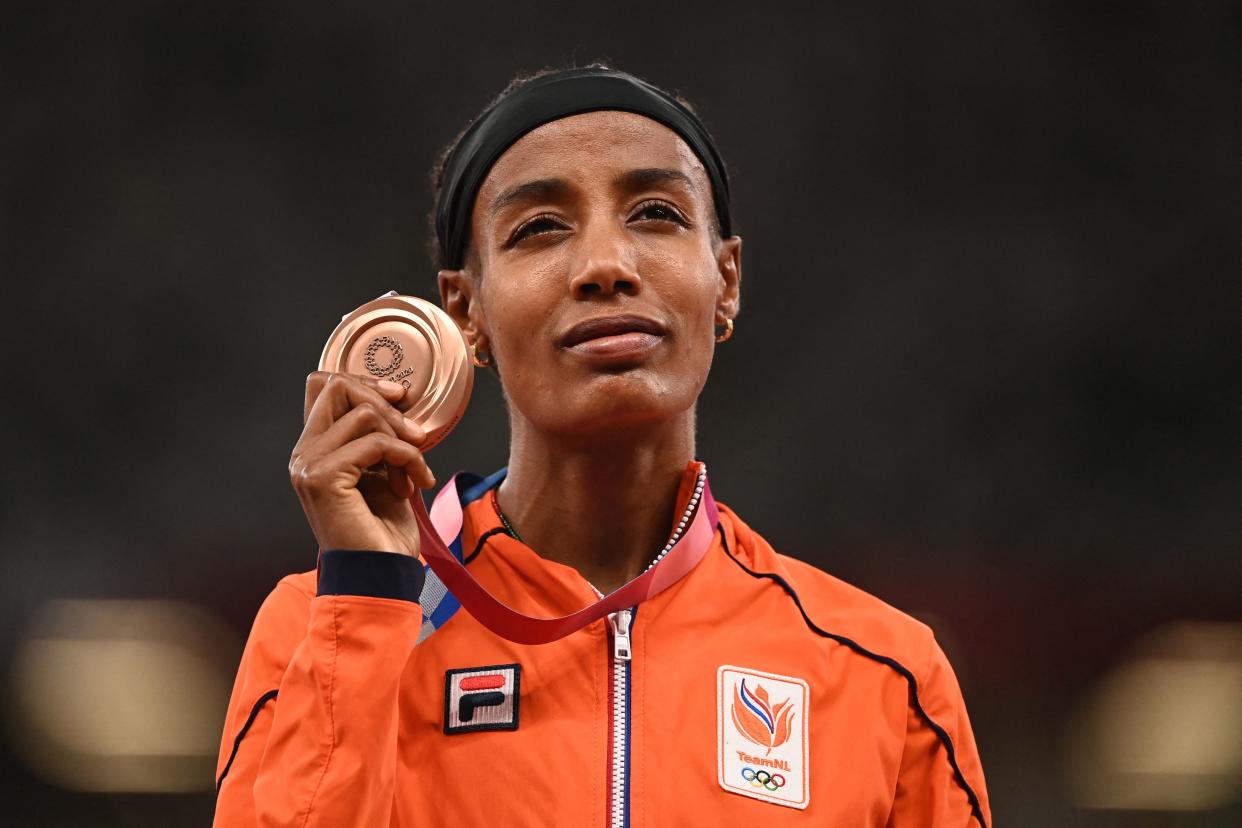Dutch runner Sifan Hassan takes 1,500-meter bronze in quest for historic triple
TOKYO – In the end it won’t be three golds, but it's still damn impressive, and could end up being historic.
On Friday night in Tokyo, Sifan Hassan finished third in the 1,500 meters — ending her bid to take home three golds, but keeping her in the running for a trio of unprecedented medals. And this one almost didn’t happen.
Four days earlier, Hassan tripped and fell on the final lap of her 1,500-meter heat. It’s hard to decide which part of what came next is more impressive: That she went on to win that qualifier, or that she also won gold in the women’s 5,000 meters later that same day.
It’s all part of the painful process of running 24,500 meters (15.2 miles) of Olympic racing in a matter of eight days in a bid to complete an incredibly ambitious treble: The Ethiopian-born 28-year-old who now competes for the Netherlands, after arriving there as a refugee at 15, came to Tokyo hoping to take home gold in the 1,500, the 5,000 and the 10,000.
It would have been the first middle- or long-distance gold medal triple since Emil Zatopek of the former Czechoslovakia at the 1952 Olympics. He finished first in the 5,000, 10,000, and the marathon over one week in Helsinki. (“Flying Finn” Paavo Nurmi won five middle- and long-distance golds, but that was almost a century ago at the 1924 Paris Games.)

Hassan laid the groundwork for Tokyo’s multi-distance attempt by winning gold in a 1,500-10,000 double at the 2019 world championships, the first time anyone had done so. Those results quickly came under scrutiny. While in Qatar, her former coach, Alberto Salazar, was banned for four years for doping offenses. (She has never failed a doping test and said at the time that she has “always had a clean conscience.”)
Her iconic come-from-behind performance in the first 1,500 heat was actually more in keeping with Hassan's normal style than how she ran the medal race. She tends to linger in the middle or back of the pack until the final lap. But on Friday, she led from the outset, only to be overtaken in the end by Kenya’s Faith Kipyegon, who set a new Olympic record in the process, and Great Britain’s Laura Muir.
So, anyway, that’s 14,500 meters down and leaves Hassan with one long 10,000 meter push. She’ll go for her second gold, which would also put her in a rarefied company. Ethiopians Tirunesh Dibaba and Kenenisa Bekele won the women’s and men’s, respectively, 5,000-10,000 double at the 2008 Beijing Games. Great Britain’s Mo Farah accomplished the same feat on the men’s side in the next two Olympics.
The focus until now has been on Hassan’s chances of taking home a trio of golds, obscuring the fact that medals of any color in these three distances would be unprecedented.
“For now,” an admittedly exhausted Hassan said, “it’s all about taking enough rest in order to be able to race again tomorrow.”
More from Yahoo Sports:

